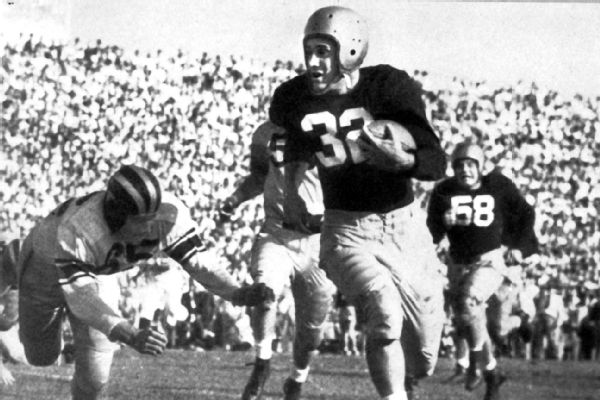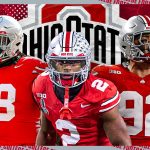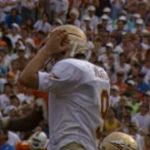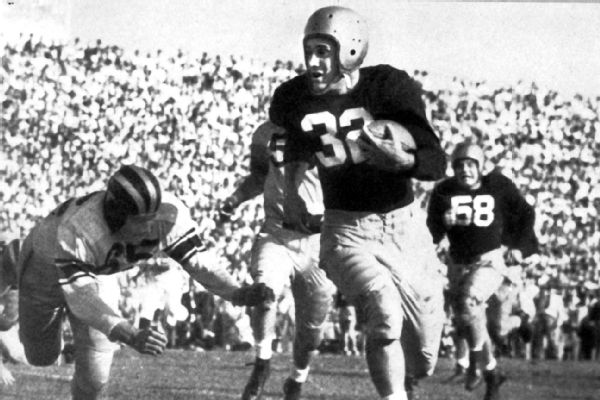
Johnny Lujack, the 1947 Heisman Trophy winner at Notre Dame who became an All-Pro quarterback with the Chicago Bears, died in Florida on Tuesday after a brief illness. He was 98.
Lujack’s death was confirmed by his granddaughter, Amy Schiller, who said he had entered hospice care recently after having been in good health until a couple of weeks ago.
Lujack led Notre Dame to three national championships in a career interrupted by two years of Navy service during World War II. He earned unanimous All-America honors in both 1946 and 1947, as Notre Dame did not lose a game, and he also earned varsity monograms in baseball, basketball and track at the school.
Playing quarterback in the T-formation as well as defensive back, Lujack became Notre Dame’s second Heisman Trophy recipient, following Angelo Bertelli.
Lujack replaced Bertelli late in the 1943 season after Bertelli was summoned to the Marines. After nearly three years of his own military service, including one stretch on a sub chaser in the English Channel, Lujack returned to Notre Dame in 1946.
He went 21-1-1 as the team’s starting quarterback. Life magazine put Lujack on the cover for the Sept. 29, 1947, issue. In addition to the Heisman, he won Associated Press Athlete of the Year honors in 1947.
“Everything for me at Notre Dame was happenstance,” Lujack told UND.com in 1999. “If I played five years later, maybe people would not have even noticed that I was around. So I feel so fortunate about the timing and everything that came my way.”
Selected fourth in the 1946 NFL draft, Lujack began playing for the Bears in 1948 and made Pro Bowls in 1950 and 1951. He tied a record with eight interceptions (on defense) as a rookie, threw for an NFL record 468 yards against the Chicago Cardinals in 1949, and he set an NFL quarterback record with 11 rushing touchdowns in 1950.
Future Pro Football Hall of Famers Sid Luckman and George Blanda played behind Lujack, who passed for 6,295 yards with 41 touchdowns and 54 interceptions in his career.
Lujack retired after four NFL seasons, later saying that he never made more than $20,000 a year in football. He returned to Notre Dame as an assistant coach in 1952 and 1953, and was mentioned as a possible successor to coach Frank Leahy, but instead opened a car dealership with his father-in-law in Davenport, Iowa.
He spent more than 40 years at the dealership before retiring in 1986. Lujack served as a CBS color commentator for New York Giants games from 1958 to 1961, and he later called college games with Jim McKay on CBS and ABC in the late 1960s.
Born Jan. 4, 1925, in Connellsville, Pennsylvania, as the youngest boy and fifth in a family of six children, Lujack played four sports in high school. Despite local pressure to attend Army — city officials even pursued an appointment to West Point — Lujack accepted Leahy’s scholarship offer from Notre Dame.
“I loved Notre Dame the first time I ever heard the name,” Lujack told The (Notre Dame) Observer in 2015.
Lujack was inducted into the College Football Hall of Fame in 1960 and into the National Polish-American Sports Hall of Fame in 1978.
Information from The Associated Press was included in this report.










